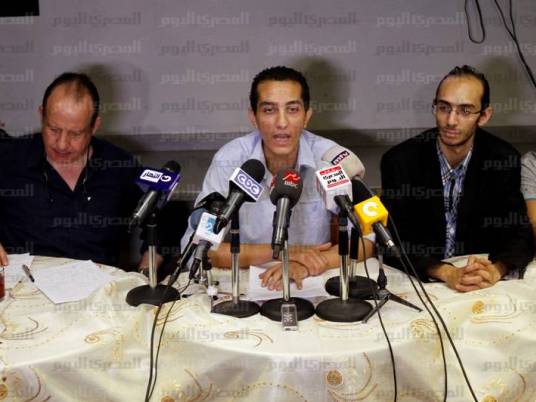Yesterday, the panel of ten judicial experts announced some of the constitutional amendments they formulated. Until the full text is published, here a are a few comments on what we know so far:
Just to note that I agree with the opinion of some legislative experts that says the panel of ten judicial experts shouldn’t have preceded the committee of fifty representatives, which, according to the road map announced after the 30th June, is to finalise Egypt’s new constitution. The ten experts are judges, not representative of Egyptian society, which is why the committee of fifty as it is commonly known, should have first formulated the constitutional amendments, which would then be forged into a legal document (constitution) by panel of ten. The panel should not get to decide Egypt’s political system, whether is presidential, parliamentary, or a mixture of both.
In addition, the constitution is not the right forum for articulating the electoral system. This should have been spelled out in a parliamentary elections law, not enshrined in the constitution, which makes the possibility of changing or amending it in the future extremely difficult.
Because of either the lack of political experience, or a misguided attempt to exclude Islamists at all costs, the panel of ten decided that the electoral system should be one of independent candidates’ representation rather than the more reformatory party list proportional representation.
As such, it opens the field for a reincarnation of the old Mubarak regime with its deeply flawed parliamentary politics, where money, family/tribal connections, and social influence determine who gets to represent the Egyptian people in parliament. It inevitably excludes women, Copts, and young politicians who have emerged on the political scene after the January revolution, and need to work through party politics to evolve and develop as future political cadres. Ironically, this opens the door for the full return of the Muslim Brotherhood, and the old National Democratic Party, as they are the only two factions who have perfected the art of winning elections as independent candidates, sometimes without people ever realising their political affiliations until too late, when they are installed in parliament.
Finally, I agree with the suggestion made by the Secretary General of the Egyptian Social Democratic Party, Mr. Ahmed Fawzy, which would help resolve many of these controversial issues. The presidency should hold another national reconciliation conference for all political parties, where they can put forward their reservations and recommendations regarding the constitutional amendments. This way, the committee of fifty representatives could incorporate this feedback, before finalising the constitutional amendments.
On the larger issue of the transitional period, we need a revival of politics and economics, instead of the current unswerving focus on security. The government needs to reassure the Egyptian people that it is aware of their needs, their yearning for immediate economic relief, before public opinion starts to lose patience with the perceived lack of performance of the transitional government. Specifically, the government needs to formulate swift legislation on critical issues such as health care, social insurance, minimum wage, and unions’ rights. If the government is already tackling these issues, then the problem is one of communication.
Ministers and spokespersons should speak to the public about their immediate plans on the economic and political fronts, and listen to the feedback coming through the media and public debates, in order to better understand and respond to the demands of the street. The problem with Baradei’s defection from the government is not merely how it potentially damaged Egypt’s reputation abroad. More important is how it could damage the image of the transitional government, which would be tarnished with the same brush and vulnerable to accusations of irresponsibility and inefficacy at such a critical junction in Egypt’s history.

